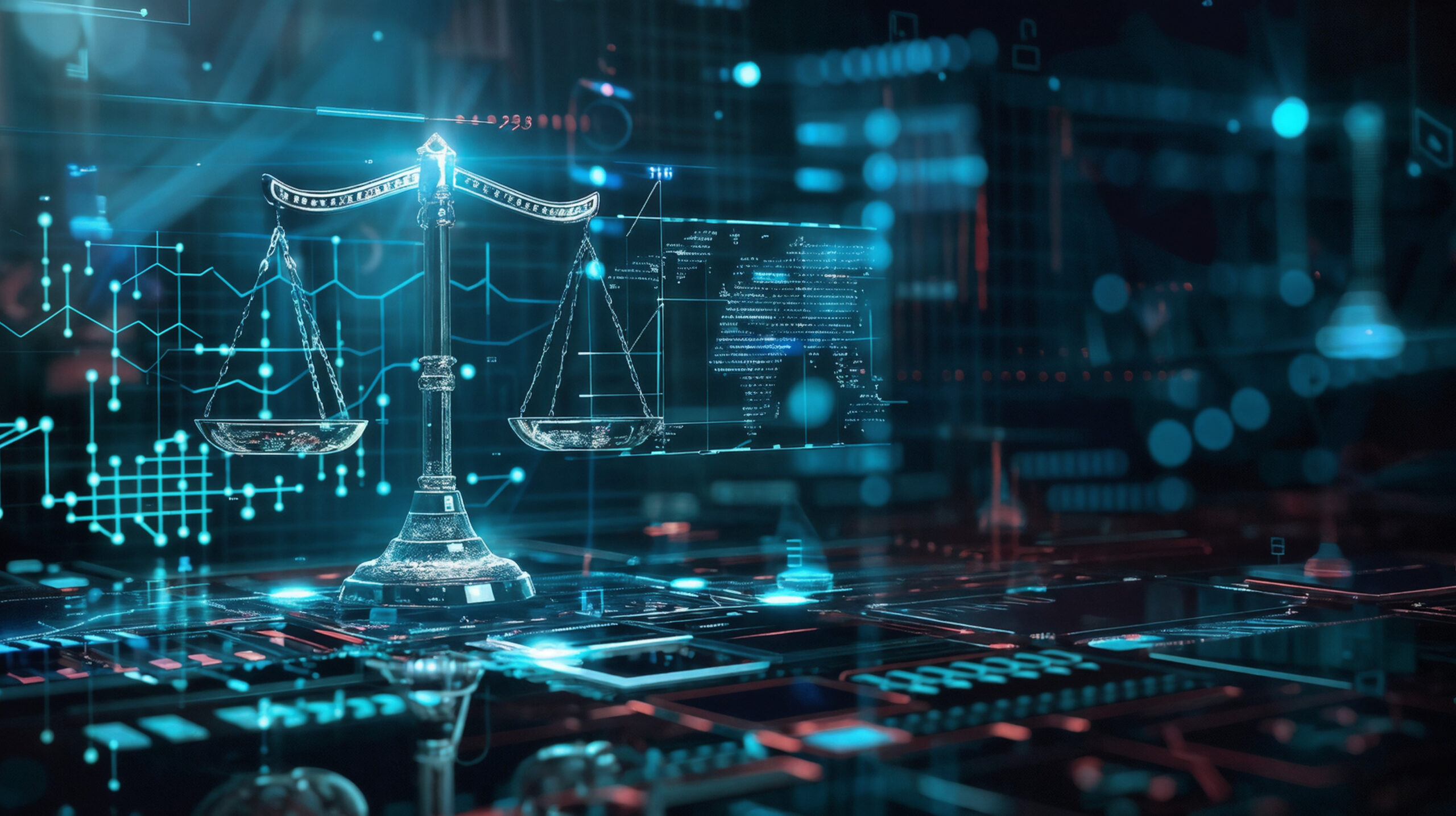
Uncharted Territory: The Impact of New Technology on the U.S. Legal System
Whether it’s discourse over banning potentially harmful social media applications or how artificial intelligence (AI) begins to redefine how our society is safeguarded, the landscape of criminal justice and law enforcement is certainly changing.
If you want to be part of impactful discussions surrounding the U.S. legal system, UofL offers nationally ranked bachelor’s and master’s degree programs in criminal justice 100% online.

Embracing the AI Era in Criminal Justice
In recent years, AI has sparked excitement and concern with its integration into various sectors and criminal justice is no exception. From predictive policing to risk assessment tools and courtroom decision-making aids, this technology is being diversly leveraged to enhance efficiency and effectiveness within the legal system. We find ourselves at the start of a transformative era where AI and human intellect can work synergistically because it is evident that the future will be led by those who can harness its revolutionary potential.
As AI continues to permeate society, its implications for the criminal justice system are both promising and perilous. While this technology has the potential to improve efficiency, transparency and fairness, it also poses significant risks if not utilized and regulated thoughtfully. In February 2024, the U.S. Department of Justice (DOJ) named its first official focused solely on AI, highlighting the profound impact it is poised to have on law enforcement and the criminal justice system. Additionally, this hiring underscores the need for professionals who can engage in informed discussions about harnessing the benefits of AI while mitigating its potential harms (Reuters).
How Can AI be Used in Criminal Justice?
AI is already being used in several new ways within the field of criminal justice. Some of the ways AI is already being used include:
- AI in policing (a.k.a. predictive policing): This concept uses algorithms to forecast where crime is likely to occur based on data from crime reports, demographics, and even weather patterns.
- Risk assessment: AI-driven risk assessment tools aim to assist judges and parole boards by predicting the likelihood of an individual reoffending or failing to appear in court.
- Courtroom transcription: AI-powered tools for transcription and translation are streamlining court proceedings, making them more accessible and efficient.
Where Do We Go from Here: New Frontiers
In April, the DOJ announced that its research, development and evaluation arm (the National Institute of Justice or “NIJ”) would be researching and later issuing a report on the use of AI in the criminal system. The NIJ’s report will address the use of AI throughout the criminal justice system and identify areas where the technology could benefit law enforcement, outline recommended best practices and make recommendations to the White House on additional actions (FedScoop.com).
According to FedScoop, the NTI’s report was included (among additional actions intended to strengthen civil rights) in President Biden’s October 2023 executive order on the technology. President Biden’s order aims to “promote the equitable treatment of individuals and adhere to the Federal Government’s fundamental obligation to ensure fair and impartial justice for all.”
As the DOJ takes its first decisive steps towards embracing and regulating AI, those working in criminal justice are preparing for a paradigm shift. You can be at the forefront of change as a criminal justice practitioner with an online criminal justice degree from UofL. Our fully online bachelor’s program can provide foundational knowledge for aspiring professionals including a comprehensive understanding of criminology, law enforcement and criminal procedure. In our master’s, you can further your understanding and delve deeper into the complexities of the criminal legal system through advanced coursework. Confront the complex challenges of tomorrow head-on, armed with the knowledge, skills and ethical framework to effect meaningful transformation in society—enroll in one of our online criminal justice degrees today!